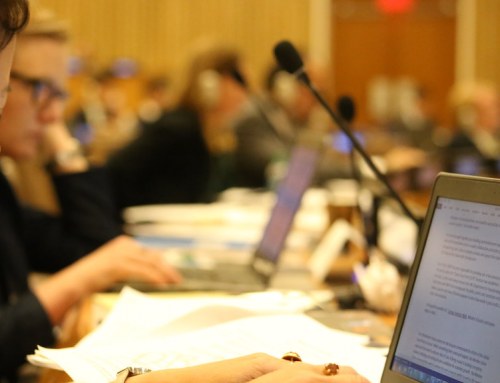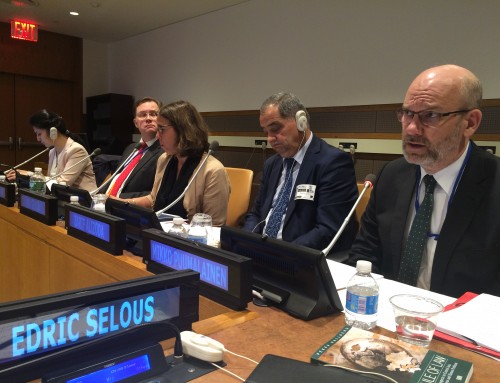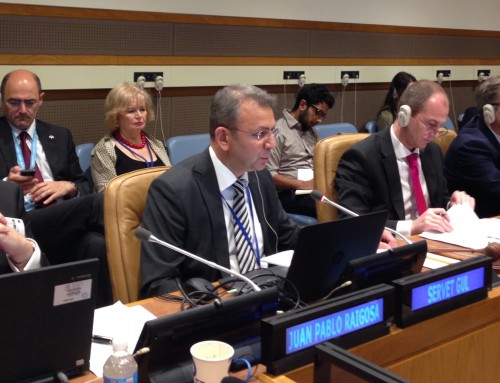Violent extremism affects all areas of the work of the United Nations, including peace and security, human rights and development. In this context, “prisons across the world have been identified as potential incubators for radicalization and recruitment by violent groups, including extremists. And conditions in post-conflict settings are particularly conducive to these dynamics”, explained Hervé Ladsous, Under-Secretary-General for Peacekeeping Operations at a High-Level Panel Discussion on “Exploring Approaches to Countering Violent Extremism (CVE) in Post-Conflict Prison Settings” on 11 January. The event, which attracted approximately 70 participants from Member States, UN offices and non-governmental organizations, was organized by the Group of Friends of Corrections in Peace Operations and hosted by the Government of Canada, as the Group’s chair.
A panel of representatives from the Counter-Terrorism Implementation Task Force (CTITF), the Department of Peacekeeping Operations (DPKO), the United Nations Office on Drugs and Crime (UNODC), the Correctional Service Canada, and Penal Reform International (PRI), led by moderator Ms. Naureen Chowdhury Fink of the Global Center on Cooperative Security, discussed how typical challenges in post-conflict prison systems, such as overcrowding, the lack of good management practices, disregard for prisoners’ rights and poor conditions of detention can contribute to prisoners engaging in violent extremism.
Panellists, however, also emphasized that the contained and controlled environment of prisons with access to at-risk prisoners can present an opportunity for CVE interventions. If managed appropriately, prisons can play a central role in preventing violent extremism. The need for further attention to the role of women as victims, perpetrators and partners in the prevention of violent extremism was also highlighted.
Panellists agreed that CVE measures need to be embedded in broader strategies to strengthen prison management in post-conflict countries. To this end, USG Ladsous emphasized that peacekeeping operations do not engage in counter terrorism activities, but that DPKO focuses on building the capacity of national authorities to uphold the rule of law and enabling national prison services to ensure safe, secure and humane detention in order to prevent violent extremism among prisoners.
In order to design successful interventions, panellists stressed the need for integrated approaches including the areas of police, justice, corrections, disarmament, demobilisation and reintegration (DDR) and human rights, and identified the ability to bring all these areas together as one comparative advantage of peace operations as a major contributor towards implementing the Secretary-General’s Plan of Action to Prevent Violent Extremism.
For more information on CVE in prisons and the Group of Friends of Corrections, please contact the DPKO Criminal Law and Judicial Advisory Service (dpko-cljas@un.org).




